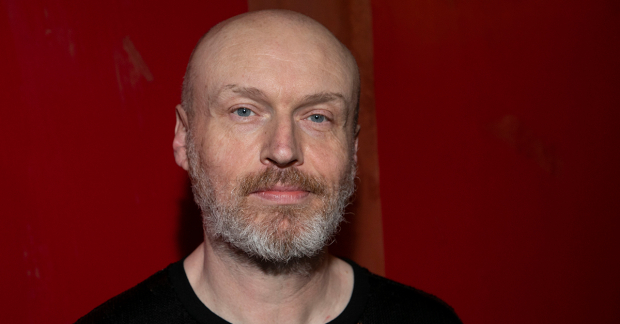
© Dan Wooller
When the playwright Mark Ravenhill was 50, he took up ballet for the first time. At more or less the same moment, his mother Angela, then 80, was vanishing deeper into dementia. The two events come together in this tender, loving, semi-autobiographical play which manages to cover a great deal of ground and emotion in its 90-minute running time.
Though carefully shaped, it is less a narrative than a series of impressions, taking you into the mind of Angela, played by Pam Ferris, as past and present merge into an often-frightening phantasmagoria of recollected incident and imagined stories. It is, of course, impossible for anyone who is not suffering from dementia to know exactly how the mind words under this kind of decline, but Ravenhill does an entirely convincing job of expressing the confusion and sheer terror that his mother experienced.
A particular poignant moment comes early when he rings and half-way through a perfectly pleasant chat, about going for a walk and eating walnut cake, his mother suddenly asks who she is speaking to. That sense of slippage, of familial bonds melting away, is increased by the fact that Angela in the play, as in life, becomes increasingly haunted by the traumatic events of her life, and particularly by the late miscarriage of a girl. "All the future washed away."
But if the piece is about Angela's suffering, it is also about Mark's upbringing too, about the influences that allowed him to become the man and the writer he is, about his mother's painstaking support that allowed him as a boy who had fallen in love with the ballet of The Tales of Beatrix Potter to dress as Jemima Puddleduck and to perform his own dance in the wood. It's about the way stories come into people's lives, and how drama can free them to dream. It also with real insight expresses the way that love, and people's needs, shape and confine lives as well as liberating them.
It is a lovely piece of writing, subtle and delicate, full of unexpected beats and quiet encounters, as Ravenhill disentangles the different strands that have become so knotted in Angela's mind. People are kind here, they try to do their best, which makes it a reflection of exactly the kind of humanity that Ravenhill also explored in his last pre-lockdown project, the musical version of The Boy in the Dress.
Although it was first conceived as a monologue, with the playwright dancing at the end, it works beautifully as an audio play, the first to come from the producing partners Royal Lyceum Theatre Edinburgh, Pitlochry Festival Theatre, in association with Naked Productions and BBC Radio 3. The format, sensitively used by director Polly Thomas, enables the telescoping of time and place, but it is always clear what is going on.
It's helped by a wonderful central performance from Ferris, that perfectly catches Angela's charm and geniality as well as her terrifying tilt into fear and fury; as the younger Angela, Matti Houghton is equally good at conveying the complexities of her personality, her longing to be a mother, her fear that she is a bad one. As Ted, the husband she turns on as paranoia takes hold, Toby Jones is a figure of decency, struggling to support a son he does not always understand and to cope with a wife he has always loved but who he is losing. Joseph Millson, as Mark, sounds uncannily like Ravenhill.
What a journey he has been on from the shock tactics of Shopping and F***ing to the warmth and emotion expressed here. It's not just that the subject is autobiographical that makes Angela so moving. Its plea for quiet endurance, for keeping dancing and keeping going, reveals a belief in the best of us that is powerfully uplifting.
The show is available from March 26 to 28 and April 1 to 2 via the Edinburgh Lyceum or Pitlochry Festival Theatre websites.












